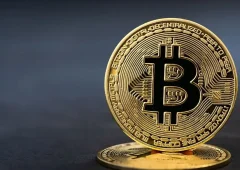Russian Parliament to Decide on Cryptocurrency Mining Bill Next Week
15.07.2024 14:09 2 min. read Alexander Stefanov
The State Duma's Financial Markets Committee has recommended that the lower house of the Russian parliament approve a bill to regulate Bitcoin and altcoin mining activities.
The State Duma is reportedly going to vote on the bill during its meeting scheduled on 23 July.
Introduced by MP Anatoly Aksakov, the bill aims to create a structured legal framework for cryptocurrency mining, which is currently in a legal grey area in Russia. This framework will provide clear guidelines for both registered companies and private miners.
According to the draft law, the Russian government, in consultation with the Bank of Russia, will determine the requirements for natural and legal persons engaged in crypto mining, including those involved in mining pools. The Ministry of Digital Development will be tasked with ensuring compliance with these requirements.
Under the proposed legislation, only registered Russian companies and individual entrepreneurs would be allowed to mine cryptocurrencies.
Private individuals would be able to mine within certain energy consumption limits. The government would also define procedures for maintaining a register of miners through regulations.
The bill also includes measures to regulate the movement of digital currencies to prevent them from being used for money laundering, financing terrorism and other criminal activities.
The bill also prohibits the advertising and distribution of cryptocurrencies. Miners would be required to report their activities and provide address identifiers to a designated government authority. In addition, they would be prohibited from combining mining activities with those related to electricity.
-
1
Pakistan to Launch National Crypto Authority for Digital Asset Oversight
23.05.2025 13:00 2 min. read -
2
Florida Pushes for Zero State Tax on Crypto and Stock Gains
26.05.2025 21:00 1 min. read -
3
U.S. Lawmakers Push Forward with Crypto Regulatory Reform
31.05.2025 15:00 1 min. read -
4
SEC Is Backing Away from Memecoin Regulation – Here’s Why
01.06.2025 15:00 2 min. read -
5
Crypto Industry Pressures SEC for Clear Staking Rules as Dialogue Improves
27.05.2025 11:00 2 min. read
Switzerland Prepares to Join Global Crypto Tax Network by 2026
Switzerland is gearing up to begin automatic crypto asset data sharing with over 70 countries, including all EU member states and the UK, as part of a broader push toward international tax transparency.
EU Eyes DeFi Rules Without Defining What It Is
As the European Union prepares for its next phase of crypto oversight, regulators are turning their attention to decentralized finance (DeFi)—without a clear definition of what decentralization actually means.
Russia Hits Pause on Expanding Crypto Mining Restrictions
In a surprising shift, Russia has shelved plans to widen its crackdown on crypto mining, choosing economic stability over stricter energy controls.
FCA Considers Opening Crypto ETNs to UK Retail Investors
Retail investors in the UK may soon gain access to crypto exchange-traded notes (ETNs), as the Financial Conduct Authority weighs reversing a three-year ban.
-
1
Pakistan to Launch National Crypto Authority for Digital Asset Oversight
23.05.2025 13:00 2 min. read -
2
Florida Pushes for Zero State Tax on Crypto and Stock Gains
26.05.2025 21:00 1 min. read -
3
U.S. Lawmakers Push Forward with Crypto Regulatory Reform
31.05.2025 15:00 1 min. read -
4
SEC Is Backing Away from Memecoin Regulation – Here’s Why
01.06.2025 15:00 2 min. read -
5
Crypto Industry Pressures SEC for Clear Staking Rules as Dialogue Improves
27.05.2025 11:00 2 min. read


